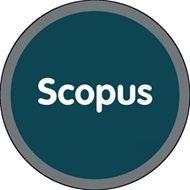Consumer Behavior Model: Brand Equity Mediated by Halal Awareness and Religiosity of Herbal Products Islamic Law Perspective
DOI:
https://doi.org/10.30631/alrisalah.v24i1.1324Keywords:
brand equity, halal awareness, consumer behavior, religiosityAbstract
Islamic economic theory emerged due to the theory of demand for goods and services. The demand for goods and services arises as a result of the wants and needs of real consumers and potential consumers. Herbal products, when associated with the Covid 19 issue, are currently a global conversation, so sales of these herbal products have experienced a significant increase compared to previous years. the Covid 19 pandemic disaster occurred. Due to the development of this herbal product sales trend, the brand equity of good quality products can affect consumer buying interest. Halal Awareness in halal-certified herbal products is a major construct that can help improve product brand reputation in intensively promoting consumer purchase intention models for halal brands. Consumer trust and behavior to buy herbal products is the key to the company's success in getting loyal consumers. An interesting question in this study is that the variables of brand equity and consumer behavior can mediate the relationship between halal awareness and religiosity variables. The purpose of this study is to analyze the relationship between consumer behavior, brand equity and halal awareness and religiosity. The research design is descriptive quantitative with a sample survey method. The research respondents were the people of Jambi City with a total sample of 200 people, but the number of samples collected was 210 people. The analysis tool uses PLS. From the results of this study, it is known that there is a positive relationship between consumer behavior, brand equity and halal awareness as a mediating variable. The study also shows that there is a positive relationship between consumer behavior and brand equity and there is a direct and significant positive relationship with brand equity. It is hoped that the results of this study will contribute empirically to thoughts related to consumer behavior, halal awareness, religiosity to brand equity.
Downloads
References
Journals, Books and Articles
Albi Anggito, Johan Setiawan, Metodologi Penelitian Kualitatif, Cet. 1, CV. Jejak, Jawa Barat, 2018.
Ali Ridlo, “Zakat Dalam Perspektif Ekonomi Islamâ€, Jurnal Al-‘Adl, Vol. 7 No. 1, 2014.
Oni Sahroni, Mohammad Suharsono, Agus Setiawan, dan Adi Setiawan, Fikih Zakat Kontemporer, Cet. 1, PT. Raja Grafindo Persada, Depok, 2018, hlm. 152-202.
Laws
Republik Indonesia, Peraturan Badan Amil Zakat Nasional Nomor 2 Tahun 2016 Tentang Pembentukan dan Tata Kerja Unit Pengumpul Zakat.
Websites
https://kbbi.web.id/eksistensi, Diakses Tanggal 03 Maret 2022.
https://kbbi.web.id/problematika, Diakses Tanggal 03 Maret 2022
Downloads
Published
How to Cite
Issue
Section
License
Copyright (c) 2024 Rafiqi, Muhammad Amin Qodri, Umar Hasan, Evalina Alissa

This work is licensed under a Creative Commons Attribution-ShareAlike 4.0 International License.

This work is licensed under a Creative Commons Attribution-ShareAlike 4.0 International License.








